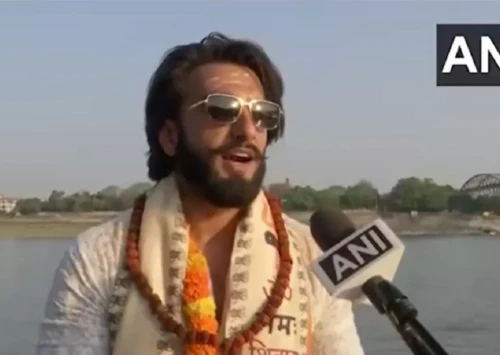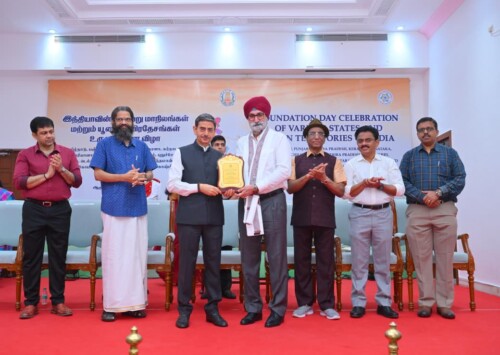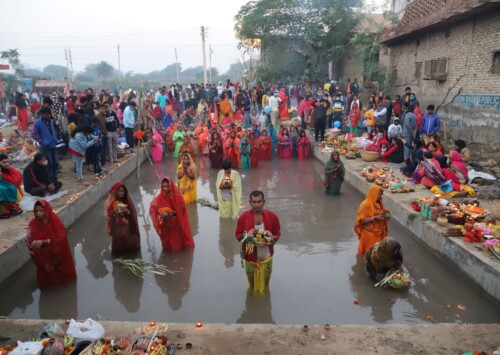Detective stories in Indian cinema: A missing genre
Lacking emotional drama & too slow build up for impatient Indian cinegoers

But the fascination with detective tales is not confined to the West. India, too, boasts a rich legacy of crime-solving heroes.
Even as Hollywood continues to breathe new life into classic detective tales like Sherlock Holmes and Hercule Poirot, Bollywood’s detective genre struggles to gain traction. While India boasts beloved sleuths such as Feluda or Byomkesh Bakshi, films based on detectives have been rare in India. As mainstream genres like horror-comedy and action dominate, the mystery genre remains largely sidelined, leaving fans and filmmakers alike searching for a fresh approach to revive this timeless storytelling tradition.

But the fascination with detective tales is not confined to the West. India, too, boasts a rich legacy of crime-solving heroes.
“Elementary, my dear Watson, elementary,”
This iconic dialogue is from none other than the world’s most famous detective, created by Sir Arthur Conan Doyle, Sherlock Holmes. His stories have stood the test of time, continuing to inspire television series, movies, and even graphic novels to this day.
This popularity has translated into major Hollywood franchises, one of the most notable being the BBC series Sherlock, created by Mark Gatiss. This modern adaptation features Benedict Cumberbatch as Sherlock Holmes and Martin Freeman as Dr John Watson. Set in contemporary London, the series puts a fresh spin on the classic detective, highlighting his razor-sharp intellect, social awkwardness, and unmatched powers of deduction.
But Sherlock was not the only adaptation to capture audiences. Back in 2009, before he became the iconic Iron Man, Robert Downey Jr. took on the role of Holmes in Guy Ritchie’s action-packed films, Sherlock Holmes (2009) and Sherlock Holmes: A Game of Shadows (2011). These movies portrayed a grittier, more physically capable version of Holmes, combining fast-paced action with clever detective work. The first film was a major box office hit, grossing USD 524 million worldwide and ranking as the eighth-highest-grossing film of 2009.
The franchise’s success did not stop there. Netflix joined the Holmes universe with its own spinoff, Enola Holmes. Starring Millie Bobby Brown as Sherlock’s younger sister, the film reimagines the detective legacy through a fresh, female perspective. Enola is independent, clever, and just as capable as her famous brother. The series shifts focus to women’s voices in a traditionally male-dominated genre, offering both a modern take and a celebration of empowerment.
Sherlock Holmes may get most of the spotlight, but he is not the only literary detective to shine on the big screen. Hercule Poirot, the meticulous Belgian sleuth created by Agatha Christie, also made a strong return to cinema. In Murder on the Orient Express (2017), directed by and starring Kenneth Branagh, Poirot investigates a murder aboard the luxurious train, surrounded by an ensemble of suspicious characters. Branagh returned again in Death on the Nile (2022), leading another murder investigation, this time during an elegant river cruise through Egypt.
In short, Hollywood has fully embraced the detective genre, breathing new life into classic mysteries. Whether it is Holmes with his cold logic or Poirot with his refined instincts, these stories continue to thrill audiences, proving that the art of deduction never goes out of style.
But the fascination with detective tales is not confined to the West. India, too, boasts a rich legacy of crime-solving heroes.
In 1965, as India stood on the brink of transformation, legendary writer and filmmaker Satyajit Ray introduced Feluda, a sharp-witted detective often compared to Sherlock Holmes. Unlike the aloof Holmes, Feluda’s charm lay in his combination of keen intellect and deeply human emotions.
Alongside his loyal brother and assistant Tapesh, Feluda unraveled intricate mysteries from the 1960s through the early ’90s. These stories were brought to life on screen, with Soumitra Chatterjee famously portraying Feluda in Ray’s adaptations. More recently, actor Abir Chatterjee has carried the mantle, introducing Feluda to a new generation.
Feluda was not the only beloved sleuth born from Indian literature and television. The quirky, carrot-munching detective Karamchand, introduced in 1985, became a television sensation with his sharp mind and engaging partnership with assistant Kitty. Played by Pankaj Kapur and Sushmita Mukherjee, the series offered some of the first glimpses of detective fiction on Indian TV, captivating viewers with its clever storytelling.
Long before the era of endless family dramas dominated Indian television, Doordarshan introduced viewers to gripping detective series like Karamchand and Byomkesh Bakshi. The latter, based on Sharadindu Bandyopadhyay’s iconic Bengali detective, premiered in 1993 with Rajit Kapur as Byomkesh and Sushmita Mukherjee as his trusted assistant, Ajit. Running for 72 episodes, the show kept audiences riveted, proving that mystery and intrigue had a lasting appeal in Indian homes.
Known as a satyanweshi, a seeker of truth, Byomkesh solved intricate murder cases set against the vibrant backdrop of Kolkata. Directed by Basu Chatterjee and starring Rajit Kapur, the series ran until 1997 and became so beloved that it has enjoyed multiple reruns over the decades.
While Karamchand remained limited to the small screen, Byomkesh Bakshi, did hit the silver screen. In 2015, the detective made a stylish comeback under director Dibakar Banerjee, with the late Sushant Singh Rajput embodying a younger, edgier Byomkesh. Set in 1940s Kolkata, this adaptation infused the narrative with the pulse of drug cartels and a soundtrack blending rock and jazz. Banerjee’s vision extended beyond just one film, he secured the rights to 30 Byomkesh stories outside the Bengali language, hoping to build a franchise spanning films and graphic novels.
Yet despite critical praise and a fresh approach, the film struggled at the box office. With a budget of USD 4.27 million and worldwide earnings of just under USD 5.37 million it fell short of commercial expectations. This setback contributed to a noticeable drought of detective stories in Indian cinema, especially on the theatrical front, leaving fans longing for more.
Drought of sleuths in India
For instance, Vidya Balan’s Bobby Jasoos in 2014, could not repeat her success in Kahaani. Based in Hyderabad, a rich man asks Bobby, a private detective, to find two girls and a boy in return for a huge sum, the film made just earned USD 217,000 on its opening day. The performance was so modest that the actress herself acknowledged that her “heart sank” when the film did not perform well at the box office.
It was not just female-led detective films facing this fate. Male-driven mysteries also struggled to capture audiences. Te3n (2016), starring Amitabh Bachchan and Nawazuddin Siddiqui, presented Kolkata in a compelling noir light as it unravelled the haunting case of a child kidnapped years ago. Despite strong performances and atmospheric storytelling, the film’s worldwide gross of USD 4.12 million fell short of expectations relative to its budget and star power.
Film experts point to several key reasons why detective-based films have become increasingly underrepresented in contemporary cinema.
According to Yash Bhatija, a film buff and a senior business manager at a digital marketing agency in Mumbai, he believes that these stories usually lack a universal appeal and cater to a very limited niche audience.
“Detective films appeal to a limited niche as they lack emotional depth, which Indian audiences prefer, and require mental effort. They also lose interest quickly after the suspense fades. Such stories work better as TV shows with recurring characters that audiences connect with. Detective movies rarely succeed unless they offer larger-than-life elements, like James Bond’s visual spectacle, making them a big-screen experience,” Bhatija tells Media India Group.
However, film reviewers and distributors say the issue goes beyond the genre’s niche appeal. Avinash Sharma explains that producers typically choose stories with mass appeal to attract larger audiences.
“In India, commercial producers favour stories that appeal to the masses and are easy to sell, which explains the success of horror comedies like Stree and Bhool Bhulaiyaa, and comedies like Golmaal. In my view, detective stories work better on OTT platforms and TV, as seen with the successful Karamchand series starring Pankaj Kapur,” Sharma tells Media India Group.
Meanwhile, after the controversy surrounding Sardaarji, Diljit Dosanjh has made a strong comeback with Detective Sherdil, a Hindi comedy-mystery directed by Ravi Chhabriya that premiered on June 20. The film has performed well at the box office, reportedly earning USD 14.23 million in net collections across India, which translates to approximately USD 16.79 million in gross revenue, according to IMDb. Often described as a “desi” take on the Hollywood hit Knives Out, Detective Sherdil showcases Dosanjh in the lead role, and the star himself has already confirmed plans for a sequel.
This solid performance signals a promising revival for the detective genre in Bollywood. Sachin Gupta, Country Head at Mumbai-based distribution company UFO Moviez, notes that with the right blend of packaging, suspense and star power, detective films have the potential to flourish as a genre.
“While detective films have not become a major trend in Indian theatres, they have not disappeared either. Movies like Kahaani, Talaash, Drishyam, and Ittefaq have blended investigation with mainstream appeal. The challenge is packaging detective stories with the right mix of suspense, star power, and mass connect. Horror-comedy works because it pairs thrills with humor, an easier sell in India. Detectives often rely on subtlety and slow builds, making them tougher to market theatrically,” Gupta tells Media India Group.
According to Mumbai-based film director Jasmeet K Reen, making detective films requires a unique perspective and a fresh approach to storytelling. There is a clear gap in detective-related stories in Indian cinema.
“When reviving beloved book characters, you need a fresh perspective and new ways to tell their stories. Sherlock has done this brilliantly, retelling the same cases with new genres, styles, and approaches, keeping the stories engaging. I believe there is an opportunity to do the same here, honouring our detectives while staying true to the characters people love. There is definitely a gap, and as far as I know, no one is actively pursuing it right now,” Reen tells Media India Group.









